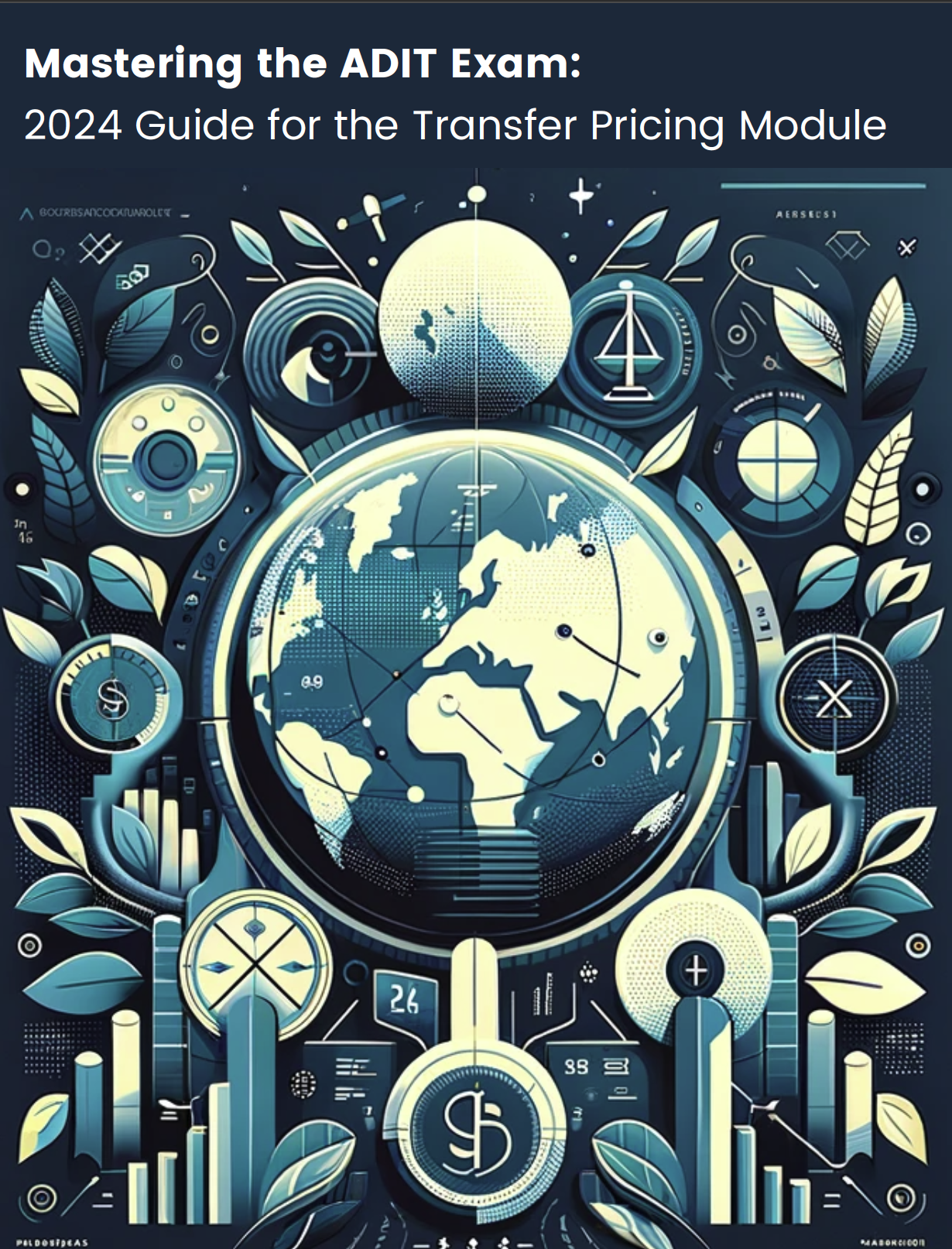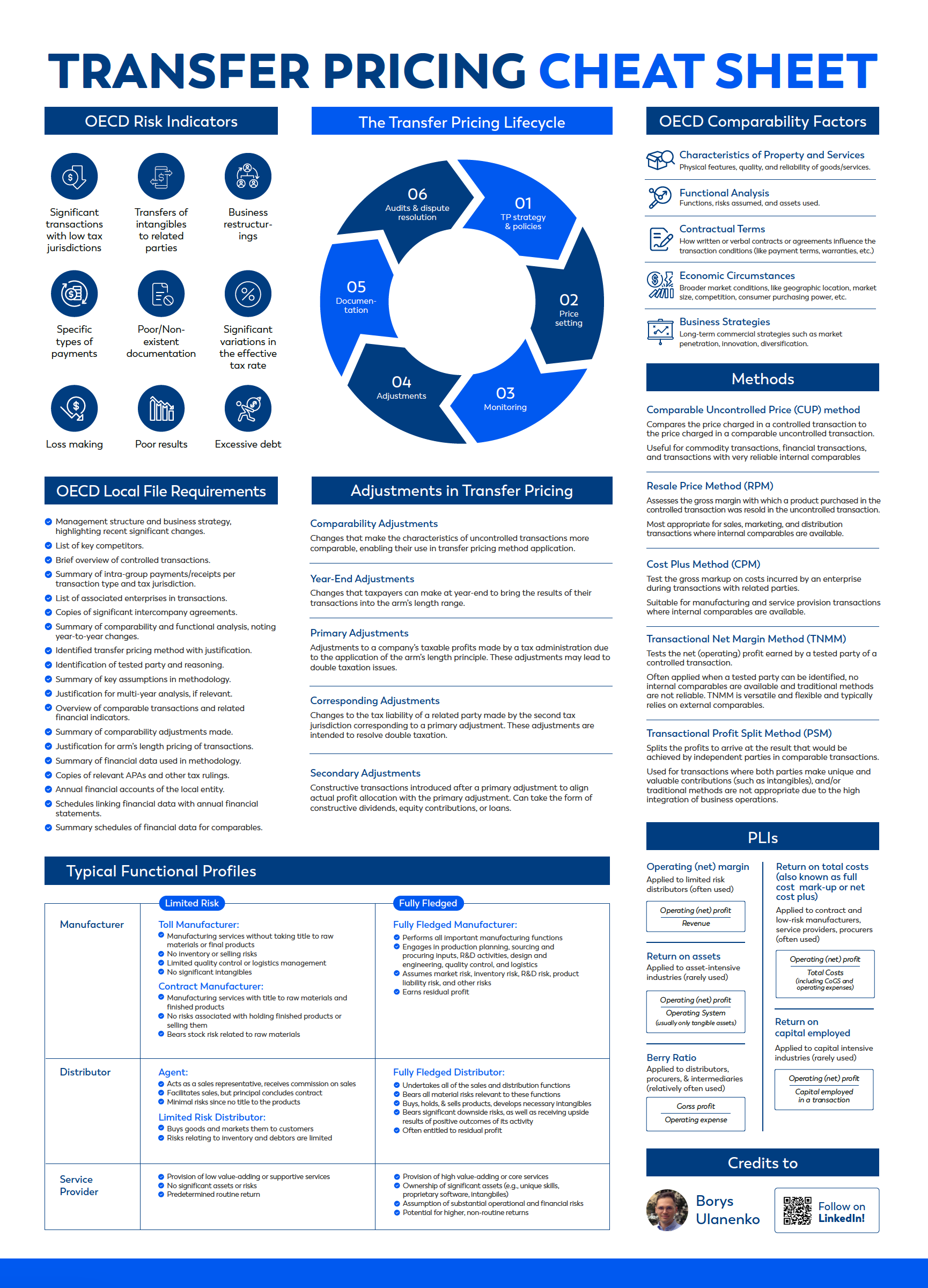ADIT Overview: What Every Tax Professional Should Know
Jun 6
/
Borys Ulanenko

Embarking on the journey to become an internationally recognized tax professional? The Advanced Diploma in International Taxation (ADIT) is a crucial milestone. This comprehensive guide provides an in-depth look into the ADIT exam, offering essential insights and tips every candidate should know before stepping into the examination hall.
What is the ADIT Exam?
The ADIT, administered by the Chartered Institute of Taxation (CIOT), is a gold standard qualification for professionals in international taxation. The exam covers a wide range of topics, focusing on international tax systems, principles, and applications. It’s designed to elevate the expertise of tax professionals, ensuring they are well-equipped to navigate the complex world of international tax law.
Exam Structure
The ADIT exam comprises three papers:
Each paper is three hours long and requires a deep understanding of the respective topics. We strongly recommend checking CIOT past papers as they are an invaluable resource for exam preparation and can give you a good overview of what is expected.
- Principles of International Taxation: This foundational paper covers the core concepts of international taxation, including residence, source, and double taxation relief.
- Jurisdictional Papers: Candidates choose one from several options, focusing on the tax system of a specific jurisdiction like the USA, UK, or China.
- Thematic Papers: These papers delve into specialized topics like transfer pricing, EU tax law, or upstream oil and gas taxation.
Each paper is three hours long and requires a deep understanding of the respective topics. We strongly recommend checking CIOT past papers as they are an invaluable resource for exam preparation and can give you a good overview of what is expected.
Why Pursue ADIT?
Earning the ADIT qualification can significantly enhance your career in international taxation. It demonstrates a high level of expertise and commitment to the field, often leading to better job opportunities and professional recognition.
Preparation Tips
- Understand the Syllabus: Start with a thorough review of the ADIT syllabus. Knowing what to expect helps in efficient preparation for your international tax course.
- Plan Your Study: Create a study plan that covers all topics, allocating more time to complex sections.
- Use Official Study Materials: Utilize study guides and CIOT past papers (access here).
- Join Study Groups: Collaborating with fellow candidates can provide new insights and aid in understanding difficult concepts.
- Practice Past Papers: Regularly practicing CIOT past papers can greatly improve time management skills and exam technique.
Get a unique guide that will make your preparation stress-free and effective, increasing your chances of success by 50%.
Essential Skills, Strategies, and Tips for Exam Success
50%+ increase in chances to pass the exam with this methodology

Get your free ADIT prep guide!
Thank you! Download here.
ADIT vs Chartered Tax Advisor (CTA)
When choosing a path in international tax professionalism, a key decision is between the Advanced Diploma in International Taxation (ADIT) and becoming a Chartered Tax Advisor (CTA). Understanding the distinctions between these two prestigious qualifications is essential for aspiring tax professionals, especially for those considering diploma in international taxation or other taxation exams.
1. Qualification Focus:
2. Exam Structure and Content:
3. Recognition and Global Relevance:
5. Professional Development and Specialization:
In summary, while both ADIT and CTA are prestigious qualifications that can significantly enhance a career in taxation, the choice depends on one’s career aspirations – whether to specialize in international taxation with a global perspective (ADIT) or to become an expert in a specific country’s tax system with some international aspects (CTA).
1. Qualification Focus:
- ADIT: Specifically designed for international taxation, ADIT provides a deep dive into global tax principles, systems, and practices. It’s tailored for those who aspire to excel in international tax regimes and cross-border transactions.
- CTA: The CTA qualification, on the other hand, is more focused on a specific country’s tax system, although it also includes aspects of international taxation. It’s ideal for professionals seeking comprehensive expertise in national tax laws along with some international elements.
2. Exam Structure and Content:
- ADIT: As discussed earlier, ADIT comprises three papers covering international tax principles, jurisdiction-specific tax issues, and thematic specializations. This structure demands a broad and in-depth understanding of international tax concepts.
- CTA: CTA exams typically involve several papers, focusing on the tax laws and practices within a particular jurisdiction, and they may also include modules on ethics and broader tax strategies.
3. Recognition and Global Relevance:
- ADIT: Being internationally recognized, ADIT is highly valued in multinational corporations and firms dealing with cross-border tax issues. It is especially relevant in an increasingly globalized business world.
- CTA: CTA is highly respected but tends to have more recognition within the country of certification. It is ideal for those looking to establish a strong foothold in national tax consultancy and advisory services.
4. Career Path and Opportunities:
- ADIT: Professionals with ADIT qualifications often find opportunities in international tax consultancy, global corporations, and roles that require navigating multiple tax jurisdictions.
- CTA: Those with a CTA qualification are typically well-suited for roles in domestic tax practices, including working with individual and corporate clients on national tax matters.
5. Professional Development and Specialization:
- ADIT: ADIT offers the opportunity to specialize in various aspects of international taxation, which can be particularly beneficial for those looking to develop niche expertise.
- CTA: CTA allows for specialization within the framework of a country’s tax system, appealing to those who wish to become experts in specific areas of national tax law.
In summary, while both ADIT and CTA are prestigious qualifications that can significantly enhance a career in taxation, the choice depends on one’s career aspirations – whether to specialize in international taxation with a global perspective (ADIT) or to become an expert in a specific country’s tax system with some international aspects (CTA).
ADIT vs Association of Taxation Technicians (ATT)
For professionals aiming to specialize in taxation, choosing between the Advanced Diploma in International Taxation (ADIT) and the Association of Taxation Technicians (ATT) qualification is a crucial decision. Understanding the key differences between these two certifications will help in making an informed choice that aligns with career goals.
1. Qualification Focus:
- ADIT: Tailored towards international taxation, ADIT provides a comprehensive understanding of global tax principles, systems, and their application. It is designed for those seeking expertise in international tax regimes and cross-border tax issues.
- ATT: Focused on UK taxation, the ATT qualification is ideal for those who wish to specialize in the tax laws and practices within the United Kingdom. It covers a range of topics including income tax, corporation tax, capital gains tax, inheritance tax, VAT, and professional responsibilities and ethics.
2. Exam Structure and Content:
- ADIT: ADIT involves three papers encompassing international tax principles, jurisdiction-specific issues, and thematic specializations in international tax. This demands a broad and detailed understanding of international tax concepts.
- ATT: The ATT exams consist of multiple papers that cover the technical aspects of various UK taxes, compliance, and professional responsibilities. Candidates can also choose to specialize in areas like business compliance, personal taxation, corporation tax, VAT, etc.
3. Global Recognition and Applicability:
- ADIT: With its international focus, ADIT is globally recognized and is particularly valuable in multinational firms and in roles involving international tax planning and compliance.
- ATT: The ATT qualification is predominantly recognized in the UK and is highly regarded in domestic tax practices, including both personal and corporate taxation.
4. Career Path and Opportunities:
- ADIT: ADIT qualification opens doors to international tax consultancy roles, positions in global corporations, and opportunities in diverse sectors that require dealing with multiple tax jurisdictions.
- ATT: ATT professionals often find roles in UK tax compliance, advisory services, and management, both in accounting firms and in-house finance departments.
5. Professional Development and Specialization:
- ADIT: ADIT offers the opportunity to specialize in various aspects of international taxation, catering to those who aim to develop niche expertise in this area.
- ATT: With ATT, there is scope for specialization within the UK tax system, which is beneficial for those looking to become experts in specific areas of national tax law.
In conclusion, the choice between ADIT and ATT depends on your career aspirations. If your goal is to develop a deep understanding of international tax principles with a global perspective, ADIT is the suitable choice. However, if you aim to specialize in UK taxation and seek a career in domestic tax consultancy and compliance, the ATT qualification would be more appropriate.
For more details about the textbook and the course, contact us:

We are an online educational platform that helps professionals and aspiring individuals to succeed in their goals.
Featured links
Get your free TP cheat sheet!
Discover the essential concepts of TP in one concise, easy-to-follow cheat sheet.

Thank you! Download here.
What is the EU Directive?
The EU is run by an elected EU Parliament and an appointed European Council. The European Parliament approves EU law, which is implemented through EU Directives drafted by the Commission. National governments are then responsible for implementing the Directive into their national laws. In other words, EU Directives are draft laws that then get passed by national governments and then implemented by institutions within the member states.
What is CbCR?
Country-by-Country Reporting (CbCR) is part of mandatory tax reporting for large multinationals. MNEs with combined revenue of 750 million euros (or more) have to provide an annual return called the CbC report, which breaks down key elements of the financial statements by jurisdiction. A CbC report provides local tax authorities visibility to revenue, income, tax paid and accrued, employment, capital, retained earnings, tangible assets and activities. CbCR was implemented in 2016 globally.
